NOTE: THIS EPISODE WAS PUBLISHED BEFORE OUR REBOOT. willwrightcatholic.com is now gooddistinctions.com
Logic and Feelings
Logic seems to be far less important to most people than their feelings and comfort. Emotional reasoning has supplanted logical reasoning in almost every sphere of human activity. The reason for this seems to be directly connected to personal comfort. No one likes to be uncomfortable, but, oftentimes, this is what is required if we are to embrace the truth. Truth requires suffering sometimes. We have to understand as a society that we cannot function without logical reasoning.
A functioning society requires that there be a prioritization of the needs of people. Certainly, each person has the basic right to order their lives according to the priorities which they desire. However, if there is nothing bonding man to man, then the priorities chosen will not line up man to man. There will be great disparities between the goals sought and the common good will certainly not be served.
Aiming Together at the Right Target
Speaking of goals sought, we can use the example of archery. If you have a bow and arrow and you are aiming at a target, you stand a chance of having the arrow pierce the target right in the center. If you are aiming even fifteen degrees away from the target, you are unlikely to hit the mark. Every person wants to hit the metaphorical targets in his or her life. However, because we live in a fallen world with a fallen nature, we often miss the mark. In fact, this is the meaning of the word “sin.” To sin is to miss the mark; it is an old Greek archery term.
Traditionally, we know that sin comes from three main causes: the world, the flesh, and the devil. We should not be under false assumptions about the lack of logic in our society and its connection to widespread sin. Sin is sometimes the consequence of valuing and utilizing emotional reasoning over logical reasoning. If we operate under false assumptions, then we will miss the mark when trying to think logically.
The good news is that we are not doomed. We can purify our assumptions and targets with humility and inquiry. If, however, we stick to thinking only with our emotions, we are going to be as inconsistent as our emotions. In many ways, emotions are like wind to our sails. A good sailor knows how to go with the wind or continue to hold course in spite of winds blowing the wrong direction.
A Shared Morality?
In a world marred by sin, with each person choosing their own priorities to the exclusion of those around them, how is society to function? How can a community organize around common goals and principles (the target) if our values and priorities are so disparate. Before we can ever suggest that people be more logical or rational, we need to introduce a common identity and vision. Truly, this common identity is a shared morality.
This is where most conversations in our pluralistic society derail. How can we possibly have a shared morality? Even Catholics cannot seem to be on the same page about very simple matters of faith and morals. Then there are non-Catholic Christians, Jewish people, Muslims, pagans of various assortments, agnostics, and atheists. How can we ever speak of a shared morality?!?
Thankfully, our shared morality is already present! It is hardwired into us. There are certain things which every person intuitively knows are right and wrong. Murder, rape, and arson are always immoral. You do not need to be taught that such things are gravely wrong. However, it does take self-knowledge and self-possession to listen to this law written into the hearts of man’s own nature. The law in our hearts which rises from our deepest nature as human beings is called natural law.
Why Do People Do Terrible Things if Natural Law Exists?
St. Thomas Aquinas says that the “light of reason is placed by nature in every man to guide him in his acts.” If this is true, and natural law exists, why do people do horrendous things?
Why do people commit murder? Why do people rape other people? Why do people commit arson? Each of these disordered acts are the result of unbridled passions. Those who kill the innocent or sexually violate others are doing so because they have a disordered inclination to do so. They believe that committing this action is a good thing. If they thought about it, maybe they would see their error, but they are likely acting from a place of emotion and passion. We all do this to some extent because we all sin (we all miss the mark). We choose a lesser good instead of a greater good.
If we are honest with ourselves, we realize how irrational we are. Human beings are imperfect. We make mistakes. We use our rational powers of intellect and will to choose things which are bad for us, but we are convinced that they are good. We are broken. This is where any conversation of a shared identity has to begin.
We have to be willing to remove the plank from our own eye before inspecting the speck in our brother’s. Certainly, there is a duty to call a spade a spade and judge actions which go against a basic sense of morality. But, we have to be willing to forgo judging the individual committing the action. That is simply not our place. To reiterate: judge actions, not people. Love people, not their actions.
A Shared Vision
So, how can we bring this all together? If we recognize that we are broken and miss the mark, then we are in a better place to grow, personally. Once we begin to grow in our own lives and put our affairs in the right order, then we can turn towards those around us. In this way, a single person begins a ripple effect of virtue and right order.
Once the bulk of the community is oriented in the same direction, with logical reasoning receiving deference and emotional reasoning receiving suspicion, then we can begin to truly coagulate a common identity once more. It has been some time since society shared a common vision, but it is possible to instantiate once more. A common vision, identity, and purpose is possible when we begin to possess ourselves and know ourselves as we truly are. With this clarity of vision, we can organize ourselves with common vision.
Self-Knowledge is the Beginning of Wisdom
Aristotle said that, “Knowing yourself is the beginning of all wisdom.” This self-knowledge does not come from within. I am sure you have heard the phrase: “I need to find myself.” No, you don’t. You need to sit still, in silence, and let reality form you. The world exists in a certain way and we often convince ourselves that our feelings will tell us the right way to go. The alternative is to observe reality, as it is, not as we would have it.
As a theist, I am strongly convicted that God is the only source of truth and the author of reality. As the ground of being, He informs us of who we are. Hidden just enough to not be seen unless sought, God shines a light on the beginnings of true self-knowledge. Armed with this new vision, in humility, our culture begins to be centered on the ultimate logic, the Logos: the uncreated Word which brings all things into being.
Perhaps you are a believer and perhaps you are not. The nice thing about reality is that facts do not care about your feelings, to borrow a phrase. Our subjective opinions and whims have to take a back seat to cold, hard logic if we are to be fulfilled and well-ordered. This necessarily means that we will be uncomfortable. We will suffer. And that is okay. It is better to live in accord with reason and be uncomfortable than to be numb and out of step with reality.
I should mention, of course, that while facts do not care about your feelings, Jesus Christ absolutely does! And, as one human family, we should care about the feelings of our brothers and sisters. Facts and reality might be cold and logical, but human persons do not need to be. We do good and avoid evil and we charitably admonish the sinner. We conform ourselves to reality and call out others when they are acting against reality, but always in love.
Wisdom Itself
In the Incarnation, the second Person of the Blessed Trinity took on flesh. In other words, He took on human nature while retaining His divine nature. He did not become partly human and partly divine. He is both fully God and fully man. Therefore, He is the perfect model for humanity of what we can be.
Our Lord is the embodiment of Wisdom, literally. He is the uncreated Word of God which was spoken by the Father eternally. Therefore, when He speaks in the Gospels we hear the words of the wisest man to ever walk the face of the Earth. Though He is fully God, He is also truly man. He had to grow in knowledge of language and customs. Jesus shows us what the human person is capable of, in some measure, when unencumbered by sin. This is not to say that we will be like Him in all things on this earth, but He does call us to grow in knowledge and love of Him. Therefore, inspired by the gifts of the Holy Spirit and led by our Lord who is the Eternal Word, we can begin to think clearly.
How to Think More Clearly
The more we learn about Jesus Christ, about the Catholic Faith, and about the world around us (from God’s perspective), the more we will grow in our capacities for rational thought. There are many brilliant atheists, but what they lack cannot be supplied by human effort. The grace of God to enlighten our hearts and minds comes from Him alone. So, it is a good thing to pray for clearer thinking and opportunities to learn more.
Second, it does no good to think clearly if we are unhealthy emotionally. There will be times in our lives when we are compromised by our passions and emotions, and therefore, are not thinking as clearly as we ought to be. It is important to reflect on our emotional state, seek the counsel of a good friend or spiritual director to enlighten us, and pray to the Lord for emotional health. Only Christ can bring us true peace in the storms of life. But no good human decision can be made while we are not in our right state of mind.
Being able to see when we are unhealthy emotionally takes a great deal of introspection and self-knowledge. As an important note, by emotional health, I do not mean mental disorders. Those suffering from anxiety, depression, bipolar, and so forth are not incapable of making good decisions.
I am referring more to emotional health as it relates to both our own personal spiritual life as well as our interaction in the public sphere. How do we react when challenged? Are we calm and balanced? Do we seek the common good or only our own good? Are we willing to listen when confronted with someone who disagrees with us?
Thirdly, we must form our conscience. If our own conscience is guiding us to act in ways incongruous with the Faith, then we are serving our own whims, not the Lord Jesus. This is a tricky thing because the Church tells us to give deference to the promptings of our conscience. If our conscience is compelling us to act a certain way, we are obliged to listen. However, the Catholic both/and comes into play here. We are called to both follow our conscience and work to form it in accord with the teachings and principles of the Church.
Fools Despise Wisdom
I will end with this reminder from Proverbs: “The fear of the Lord is the beginning of knowledge; fools despise wisdom and instruction (Proverbs 1:7).” In sum: let’s not be fools. Fear of the Lord is a gift from God. It is recognizing who God is and who we are before Him. It is the first and most important priority. When we have humility, we have a healthy fear of the Lord and we begin to grow in self-knowledge and wisdom. Only then do we begin to have the vision that will lift ourselves and, ultimately our culture, out of the mire.


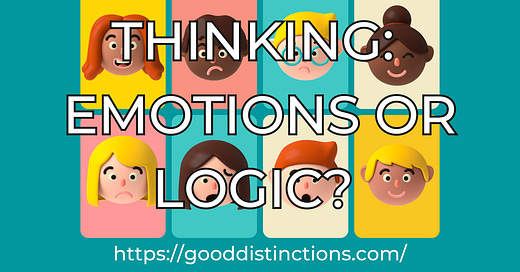




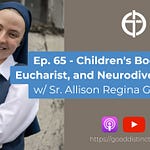
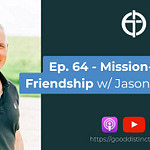
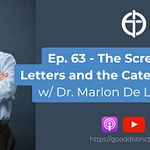



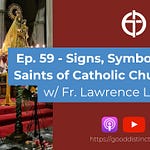
Share this post